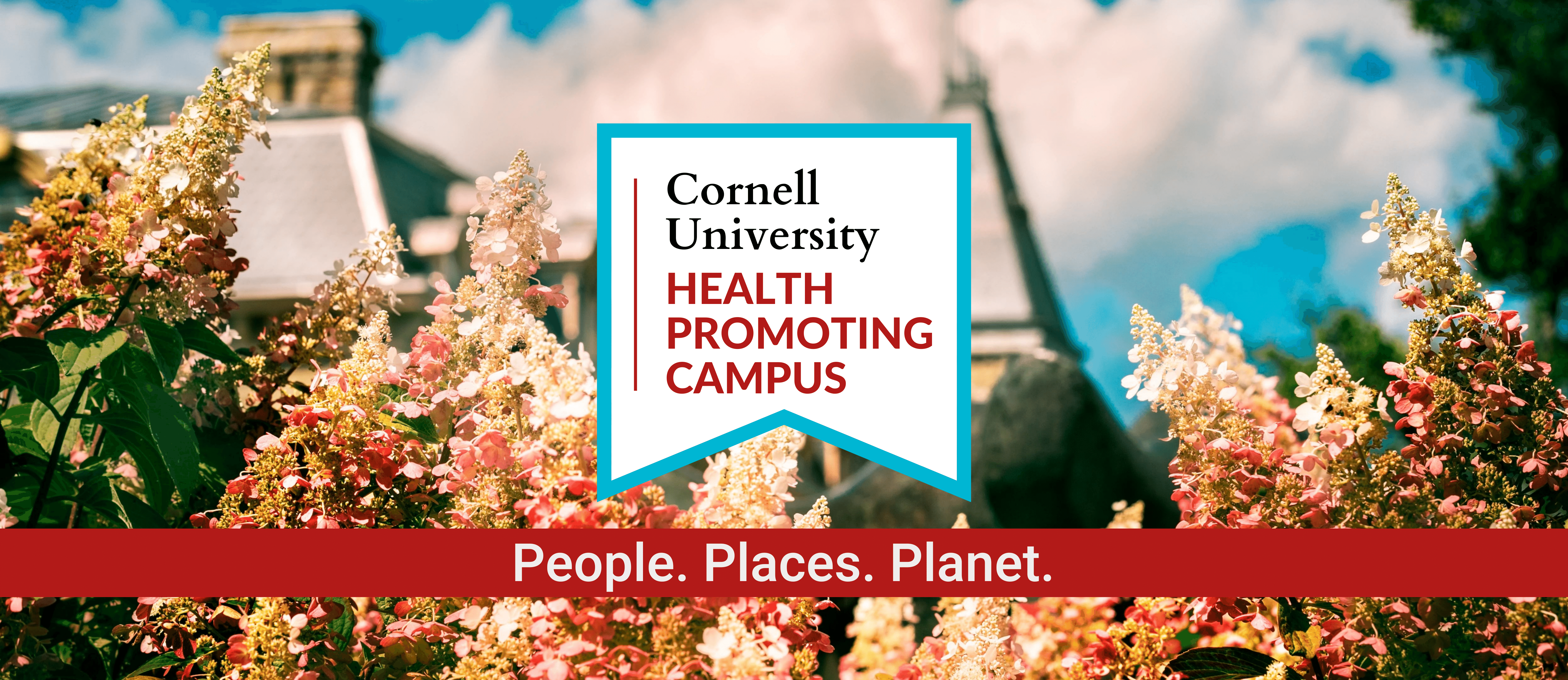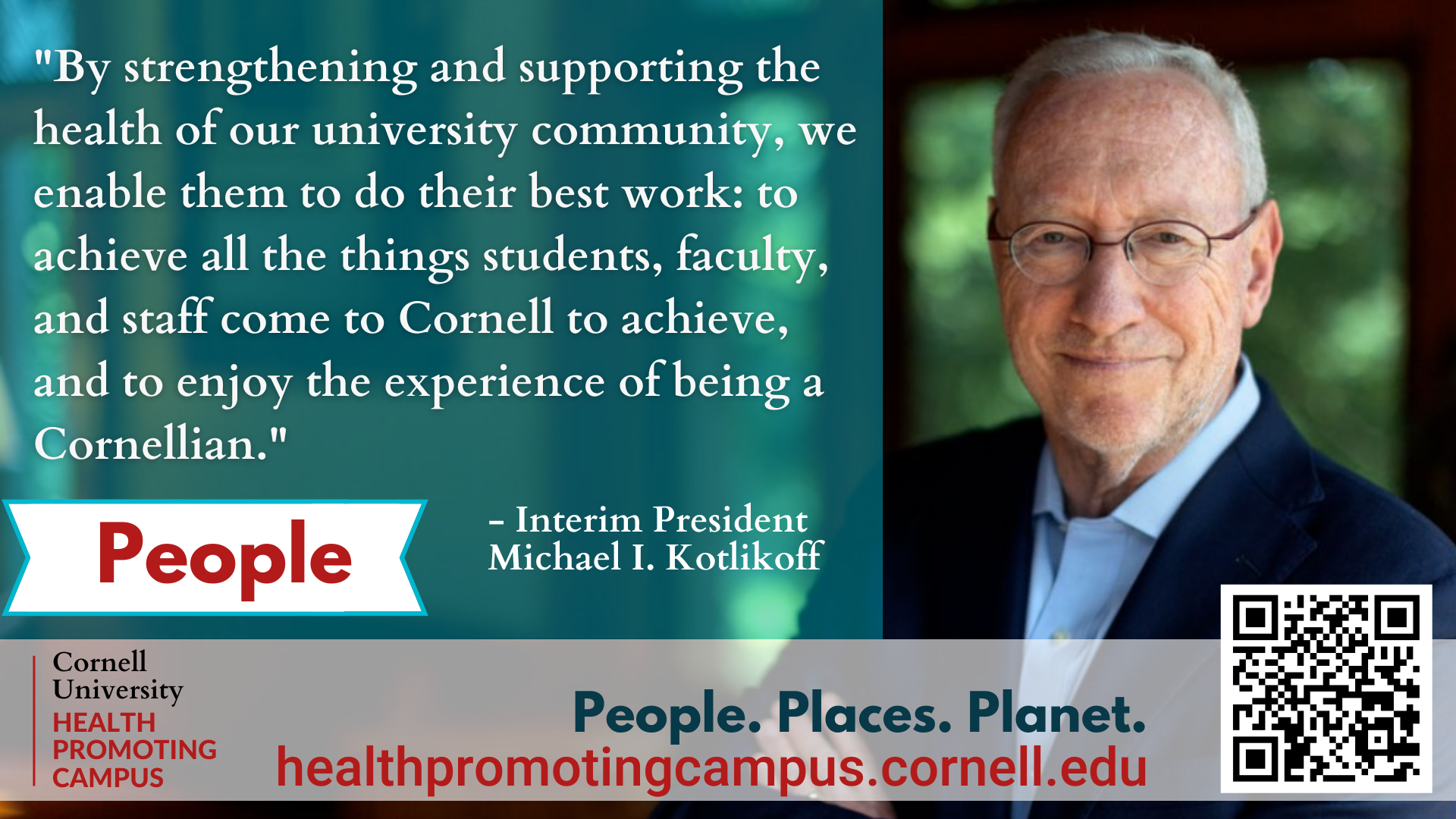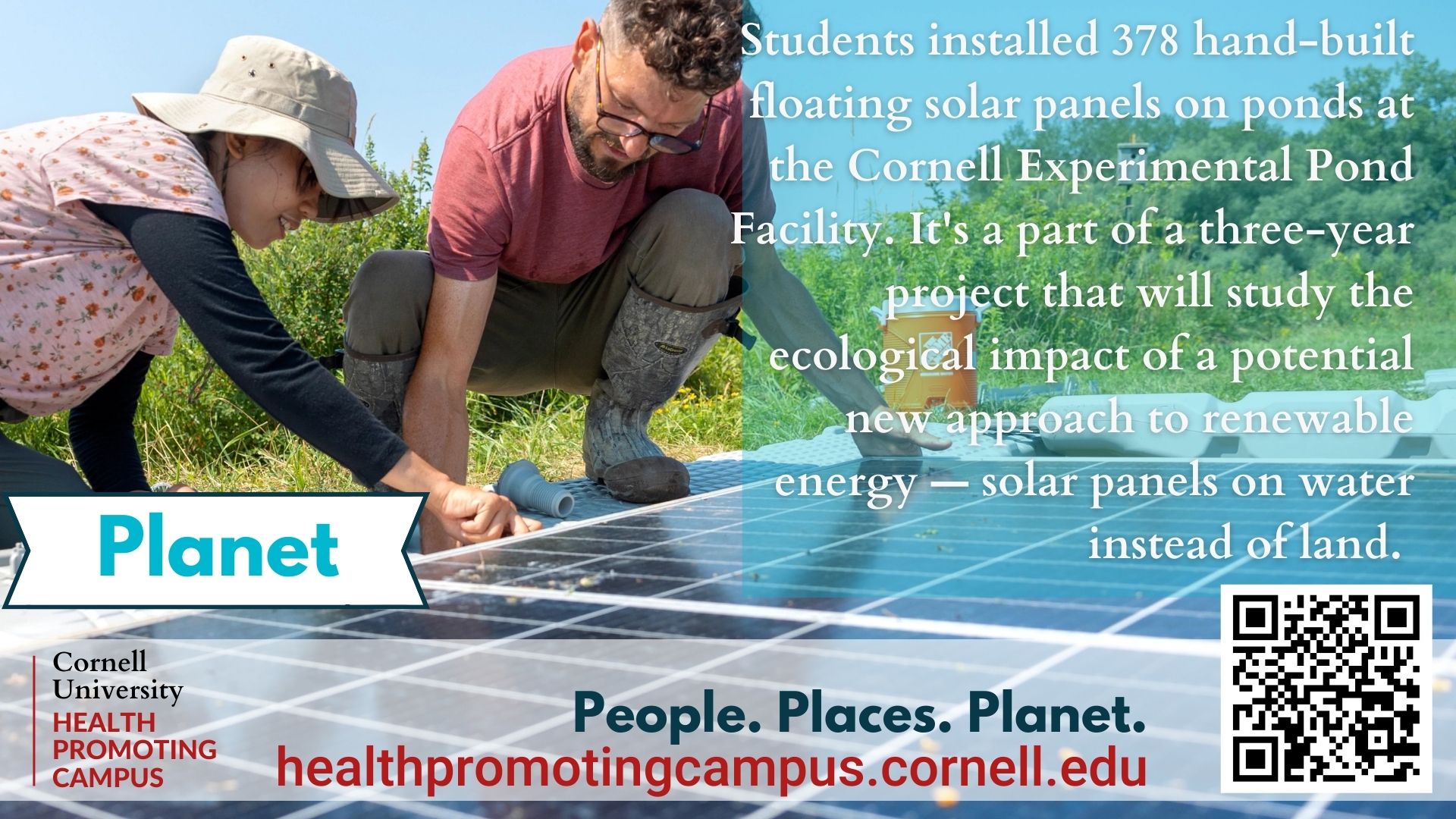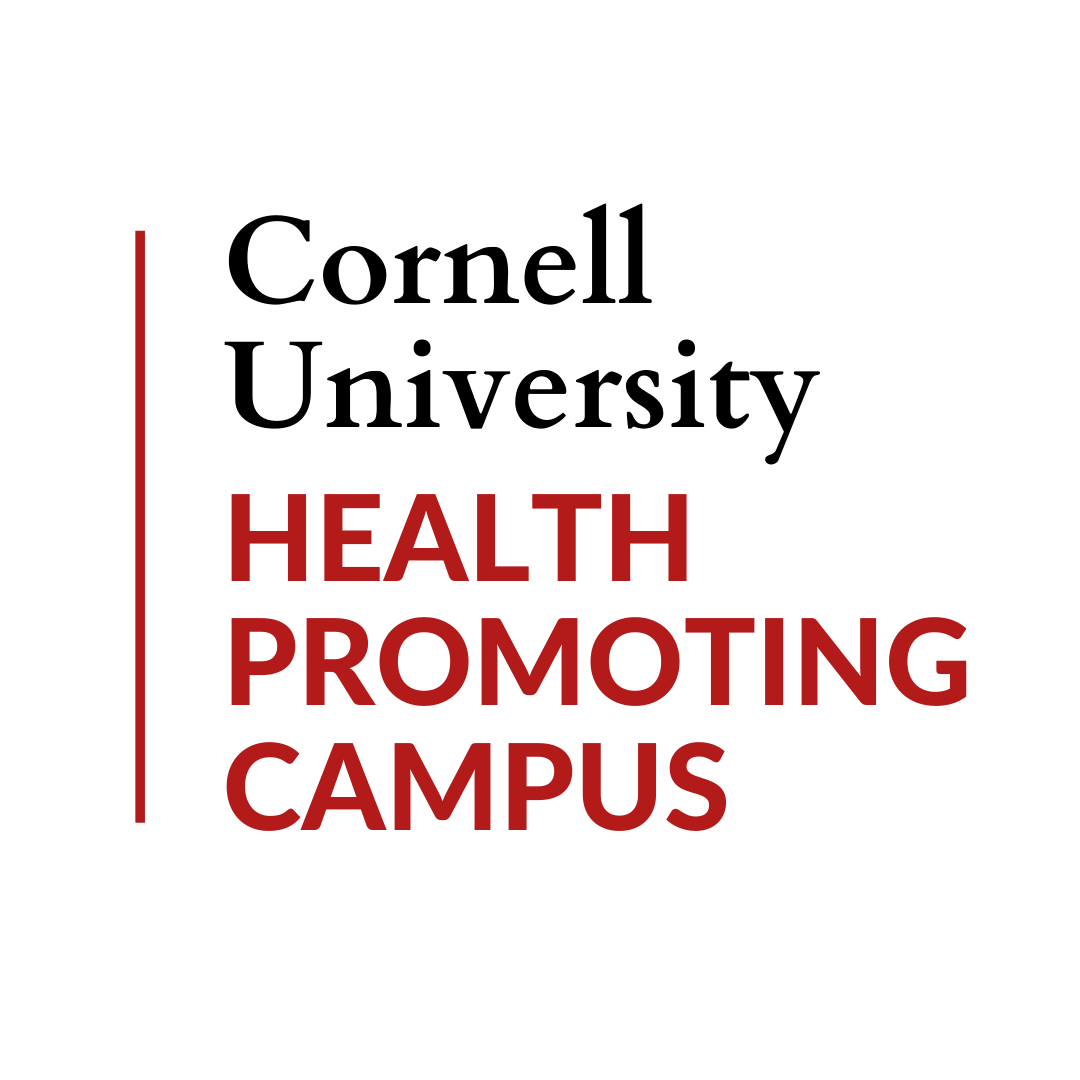Toolkit

Tools you can use.
We invite all members of the Cornell community to utilize this collection of resources.
Health Promoting Campus Guidelines
Health Promoting Campus guidelines are designed for faculty, staff, and students to consider when working in the areas of Research and Evaluation, Policies and Practices, Supportive Environments, Belonging and Connection, Personal and Professional Development, Services and Resources.
Research and Evaluation
These guidelines provide recommendations for a three-tiered evaluation structure to monitor student health and wellbeing at the program (Level 1), policy (Level 2), and population level (Level 3).
View and download Health Promoting Campus guidelines through Cornell Box (CU NetID required). If you need assistance, please reach out to healthpromotingcampus@cornell.edu.
Policies and Practices
These guidelines are designed are designed to help those who draft, implement, and evaluate policies across campus consider the health implications of policies, and to invite the Cornell community to design policies that center and promote individual and campus health and wellbeing. This document prioritizes health equity, clarity, transparency, data-driven strategies, and stakeholder engagement as key components that help policymakers consider the health-related impacts of policies on people, places, and the planet.
View and download Health Promoting Campus guidelines through Cornell Box (CU NetID required). If you need assistance, please reach out to healthpromotingcampus@cornell.edu.
Supportive Environments
These guidelines are designed for students, faculty, and staff who lead communities within Cornell. They offer an opportunity to reflect on how you contribute to a supportive environment by considering factors such as context and self-awareness, and to understand how you can intentionally foster such an environment.
View and download Health Promoting Campus guidelines through Cornell Box (CU NetID required). If you need assistance, please reach out to healthpromotingcampus@cornell.edu.
Belonging and Connection
Experiences of belonging and connection are deeply personal, and our understanding varies based on unique individual and collective backgrounds. These guidelines provide provide an overview of elements to consider, including questions to ask, as faculty and staff shape the culture of their departments, classrooms, or teams to cultivate a sense of belonging and connection.
View and download Health Promoting Campus guidelines through Cornell Box (CU NetID required). If you need assistance, please reach out to healthpromotingcampus@cornell.edu.
Personal and Professional Development
Personal growth requires motivation and includes the desire to expand your knowledge, identify different ways of thinking, explore new perspectives, move outside of your comfort zone, and assess your readiness to make changes to live a fulfilling life. These guidelines are intended to assist students in developing a personal development plan.
View and download Health Promoting Campus guidelines through Cornell Box (CU NetID required). If you need assistance, please reach out to healthpromotingcampus@cornell.edu.
Services and Resources
Cornell University is a large institution where student services and resources are communicated through multiple channels, which can sometimes lead to conflicting or duplicative information. The guidelines for services and resources are designed for faculty, staff, and students to consider when developing resource pages for their respective areas, providing campus partners with language to be used on their respective websites to link to a regularly vetted resource page they can share with their respective audiences.
View and download Health Promoting Campus guidelines through Cornell Box (CU NetID required). If you need assistance, please reach out to healthpromotingcampus@cornell.edu.
Media Slides
Consider sharing digital media slides for your student audience through your managed screens or leverage during opening slides of PowerPoint presentations.
PowerPoint and Digital Media slides
Videos
Please download Cornell's Health Promoting Campus videos and consider embedding them on your websites and sharing links to them in your communications with other Cornell staff, faculty, and students.
Videos
Cornell's Health Promoting Campus videos were produced with leadership from Digital Communications Specialist in the Division of Human Resources Jerry Deis.
Land Acknowledgment Video
As part of our Health Promoting Campus efforts, representatives from SCL and Human Resources created a Cornell University Land Acknowledgment video that is now included in our HPC toolkit. The purpose of this video is to provide students, staff, and faculty with a modality that can be used in meetings, classes, and other venues to ensure proper pronunciation and pacing, and convey respect for the local indigenous peoples, past and present.
Special thanks go to the following SCL staff members for lending their voices in reading the Acknowledgment: Adaeze Okorie (Skorton Center), Brennan Doxtater (Cornell Health Clinical Administrative Support), Sarah Janusz (SDS), Wahieñhawi (Hawi) Hall (CAPS), and Ryan Lombardi (VPSCL). Thanks also go to Jerry Deis, Digital Communications Specialist in Human Resources, for the creation of this video.
Wellbeing in Scholarly Environments (WISE)
Wellbeing in Scholarly Environments (WISE) is a campus-level initiative through which faculty members, academic teaching staff, and teaching assistants can support wellbeing through their teaching and advising practices.
Learn with WISE
WISE promotes small changes in the classroom to enhance learning and foster mental health, and has the following goals:
- Increase social connection among students and between students and faculty members
- Foster a growth mindset in students to allow them to adapt to setbacks and persevere in the face of challenges
- Encourage help-seeking and self-care practices in students; normalize asking for help and utilizing resources
- Help students reflect on their coursework in relation to their sense of purpose and life
Staff, faculty, and TAs can enroll in the Well-being in Scholarly Environments Canvas course to learn tips around supporting the health and wellbeing of students by adopting small changes in the classroom to enhance learning and foster mental health.
Wordmark
Cornell University staff, faculty, and students are invited to use the Health Promoting Campus wordmark on materials created to support and celebrate university events and initiatives related the wellbeing of people, places, and planet.




